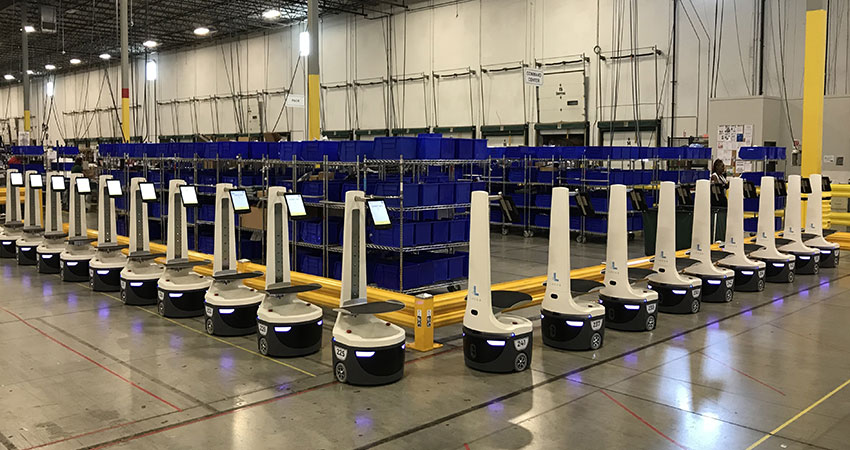Locus Robotics, a provider of autonomous mobile robots (AMR) for fulfillment warehouses, has raised $150 million in a Series E round, led by Tiger Global Management and Bond, bringing its valuation to the unicorn level north of $1 billion as its business multiplies.
The round also includes existing investors Scale Venture Partners and Prologis Ventures, the venture capital arm of Prologis, bringing Locus’s funding total to $250 million.
Some focus areas for the new funds are increasing Locus’s ability to leverage data science, analytics and visualization to help companies optimize fulfillment operations, as the pandemic challenges workforces even as online sales spike upward. The company says its bots have picked more than 300 million units, including 70 million this past holiday season.
Rick Faulk, CEO of Locus Robotics, said the funding round was oversubscribed as investors are eager to grab hold of the rapid growth in demand for robotic solutions as fulfillment operations race to keep up with ecommerce orders. He said his business has done a “triple-triple, double-double” in recurring revenue since 2017, tripling for two years, then doubling for the next two.
“I’ve been raising money a long time, and this was the smoothest, fastest round ever,” Faulk said. “Investors around the world understand how big the market opportunity is and how severe the problem is, and they want to get in.”
The funding will be used in five principal ways, Faulk said: R&D to improve functionality for clients creating “digital warehouses,” to expand further into Europe and lay plans for Asia-Pacific in 2022, to expand the sales and marketing teams, increase the fleet of robots and hire across disciplines at the Boston headquarters as well as in other geographies.
Locus Robotics has about 4,000 robots used by 40 customers across 80 sites, with 80% of the deployments in the U.S. and the rest in Europe. ABI Research estimates there will be 4 million warehouse robots in 50,000 facilities by 2025.
Locus plays in the space of flexible “robotics as a service,” allowing companies to expand or contract fleets of AMRs on a subscription basis as demand requires, without a major capex investment or bolted-to-the-floor infrastructure. Faulk said Locus Robotics has been expanding its ability to provide dashboard views of performance and demand metrics that can be pushed out to handheld and wearable devices, while AI-driven predictive analytics helps optimize inventory placement and order flow.
“We’re using real-time data visualization,” he said. “The robots are collecting a lot of data, interacting with humans, looking on shelves and seeing inventory. AI and machine learning enables operations managers to visualize ways to run their facility better. They can see where order flow is going to be in the next hour to assign labor more efficiently, or see a stacked rank of associate performance.”

